Comprehensive ophthalmologist Laurel Tainsh, MD, and glaucoma specialist Michael Lin, MD, help clear up the confusion around this common yet poorly understood diagnosis.
You’re at your routine eye exam. After getting a standard workup, including vision and eye pressure checks, the ophthalmologist says: “you’re a glaucoma suspect.”
You might not know what that means, but you do know that glaucoma is a disease that causes irreversible vision loss, so you are naturally concerned. Does this mean you will definitely get glaucoma? Do you need to start treatment? Focus spoke with Laurel Tainsh, MD, a comprehensive ophthalmologist, and Michael Lin, MD, a glaucoma specialist, to break down what patients need to know about being called a glaucoma suspect.
“Glaucoma suspect” does not mean you already have glaucoma
Glaucoma is a complicated disease that can manifest in several different ways, explained Dr. Tainsh. It is often referred to as the “sneak thief” of sight because it progressively causes damage to the eye’s optic nerve, causing vision loss over time, often without a person realizing it. Currently, there are no treatments to reverse the nerve damage caused by glaucoma, and medications such as eye drops and surgeries are aimed at reducing eye pressure to delay or prevent further vision damage. That is why ophthalmologists want to catch it early in case a referral to a glaucoma specialist and/or treatment is needed.
During a routine eye exam, an ophthalmologist might come across signs that suggest a patient may have glaucoma. These signs typically fall into two categories: high eye pressure and a suspicious looking optic nerve.
These patients are labeled glaucoma suspect in the absence of other known causes for these signs, such as medications or eye trauma.
An eye doctor will also consider risk factors for glaucoma before deciding if a person is a glaucoma suspect. These include age, ethnicity (people of African American or Hispanic descent are more likely to develop glaucoma), family history of glaucoma, and steroid medication use.
Glaucoma suspect patients need more testing
“When we consider a patient to be a glaucoma suspect, we order follow-up testing,” said Dr. Tainsh.
Multiple different tests will be done in the evaluation of a glaucoma suspect, but two tests are particularly important. One is an objective test called an optical coherence tomography (OCT) that takes pictures of the retina and optic nerve, allowing ophthalmologists to measure retinal thickness and look for signs of optic nerve damage.
The other is a subjective test called a visual field test. Glaucoma affects peripheral vision, and this test measures whether potential optic nerve damage is impacting vision. The results of these tests establish a baseline for an eye doctor and will determine what type of follow-up a patient needs and how often, and if they need to begin some form of treatment.
There is no standard follow-up schedule and it is based on the ophthalmologist’s judgment. If everything is normal on follow-up testing, Dr. Tainsh will likely ask a patient to come back in a year for a repeat test. If there’s an abnormality upon further testing, she’ll repeat the test much sooner to confirm the abnormality.
Annual monitoring is crucial, according to Dr. Lin, and can happen at the same time as a routine annual eye examination. “In some cases, if the suspicion of glaucoma is very low, waiting longer than a year between visits may be reasonable,” he added.
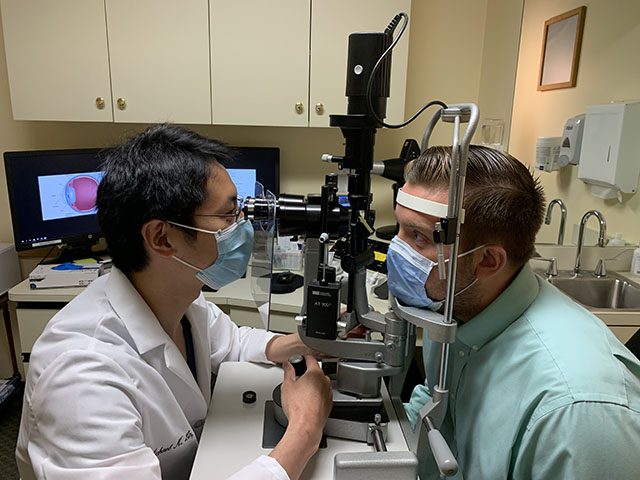
Reason for concern?
After patients get examined and tested, what is the likelihood they’ll eventually develop glaucoma? Unfortunately, it remains difficult to predict.
“That’s the most frustrating part for patients, said Dr. Tainsh. “When we call a patient a glaucoma suspect, they want to know what their chances of getting glaucoma are, and it’s hard to say, which is why we watch them closely.”
Unless you have a very strong family history, especially if someone in your family has gone blind from glaucoma, there is likely no need to worry too much at this time. But you should be aware you are a glaucoma suspect and follow your doctor’s advice as far as a follow-up schedule and next steps. Even if later examinations and testing suggest that you actually do have glaucoma, your doctor is catching it at an early stage, and most patients who have glaucoma maintain good functional vision throughout their lives.
When a glaucoma specialist should be consulted
Dr. Tainsh will often involve a glaucoma specialist for a second opinion when there is significant concern about the test results. Here at Mass Eye and Ear, that referral can happen within a couple weeks, but elsewhere in the country—especially in rural areas—a glaucoma specialist might be harder to find. In those cases, the comprehensive ophthalmologist may handle most of the care. “Most comprehensive ophthalmologists may be comfortable treating early glaucoma,” said Dr. Tainsh
Dr. Lin added that there are several factors to decide when someone should see a glaucoma specialist. Reasons include patient or doctor concern about having true glaucoma; high eye pressures; concerning optic nerve features, such as blood spots and notches; thinning of optic nerve tissues on OCT scans; or signs of visual field loss on testing done in the office.
“Fortunately, in the greater Boston area, there are many excellent fellowship-trained glaucoma specialists who are available to evaluate new patients,” he said.
According to Dr. Lin, the specialist will review the medical history and perform additional tests and decide whether to start treatment. Some factors that would lead a specialist to recommend starting treatment include very high eye pressures, severe thinning of the optic nerve, decreased ability to detect light during a visual field test of a patient’s side vision, and strong family history of glaucoma.
Take-home advice for glaucoma suspect patients
While there should not be reason for concern for most patients, that does not mean a person who is a glaucoma suspect should be complacent, according to the experts.
“Most people who are told they are glaucoma suspects often do well and will never have vision loss from glaucoma in their lifetimes. However, routine examinations are important because glaucoma suspects are at higher risk for glaucoma than the average person,” said Dr. Lin. “A nightmare scenario for a glaucoma specialist is that a patient is told they are a glaucoma suspect and feel so reassured that they don’t get an eye examination for another 15 years and show up later with extremely advanced vision loss from glaucoma.”
If you are glaucoma suspect, the best thing you can do is to follow your eye doctor’s advice on future eye exams for continued monitoring and to reach out to them if you experience a change in your vision.
About our experts
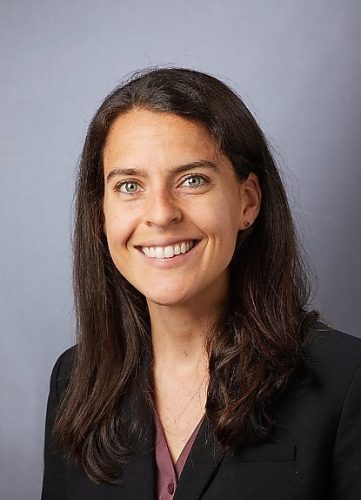 Laurel Tainsh, MD, MHS, is a comprehensive ophthalmologist who specializes in general eye care and cataract surgery. She sees patients at the Mass Eye and Ear, Stoneham and Main Campus (243 Charles Street, Boston) locations.
Laurel Tainsh, MD, MHS, is a comprehensive ophthalmologist who specializes in general eye care and cataract surgery. She sees patients at the Mass Eye and Ear, Stoneham and Main Campus (243 Charles Street, Boston) locations.
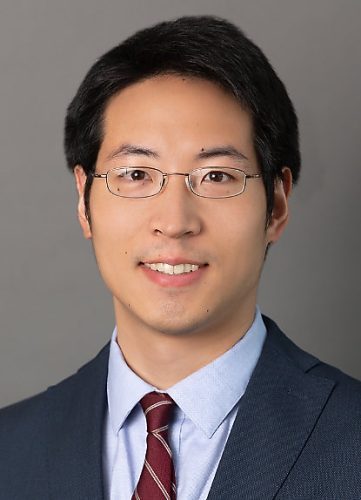 Michael Lin, MD, is a glaucoma specialist who treats all forms of glaucoma in adults and performs a wide range of procedures including microinvasive glaucoma surgery (MIGS), as well as cataract surgery. He sees patients at Mass Eye and Ear, Longwood, the Main Campus location in Boston, and at Mass Eye and Ear, Malden office.
Michael Lin, MD, is a glaucoma specialist who treats all forms of glaucoma in adults and performs a wide range of procedures including microinvasive glaucoma surgery (MIGS), as well as cataract surgery. He sees patients at Mass Eye and Ear, Longwood, the Main Campus location in Boston, and at Mass Eye and Ear, Malden office.


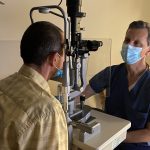
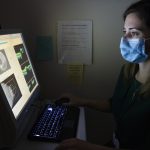
Thank you. Helpful article for me. After routine eye exam, I was told to make a followup appointment. I was not given an explanation as to why. I understand now that I must be a
“Glaucoma Suspect”. Thank you.
Thank you for reading and your comment, Maria. We were hoping our experts could help clear up the confusion on what it means to be a glaucoma suspect.
Had atrabevlectomy about 10 years ago on my right eye. Losing vision in that eye. My Dr wants to do a new operation procedure on my left eye. Do not agree because my left eye is stable pressure14 eye site is good. Do I need a second opinion .?
Will this new treatment help people that have already been diagnosed with glaucomas?
Early detection of glaucoma is key! Eyesight is so vital, take it seriously if your doctor is concerned. I am so grateful for the attentive care I receive at MEEI!
Thanks for reading and for your comment, Michael! Glad you had a great care experience here.
I appreciate you talking about how glaucoma doctors and optometrists are extremely available for consultations. My father’s vision problems have made me think about how dangerous it might be to continue ignoring that issue. Now that I know that it’s easy to get help, I’ll go and look for any optometrists my father can consult for this.